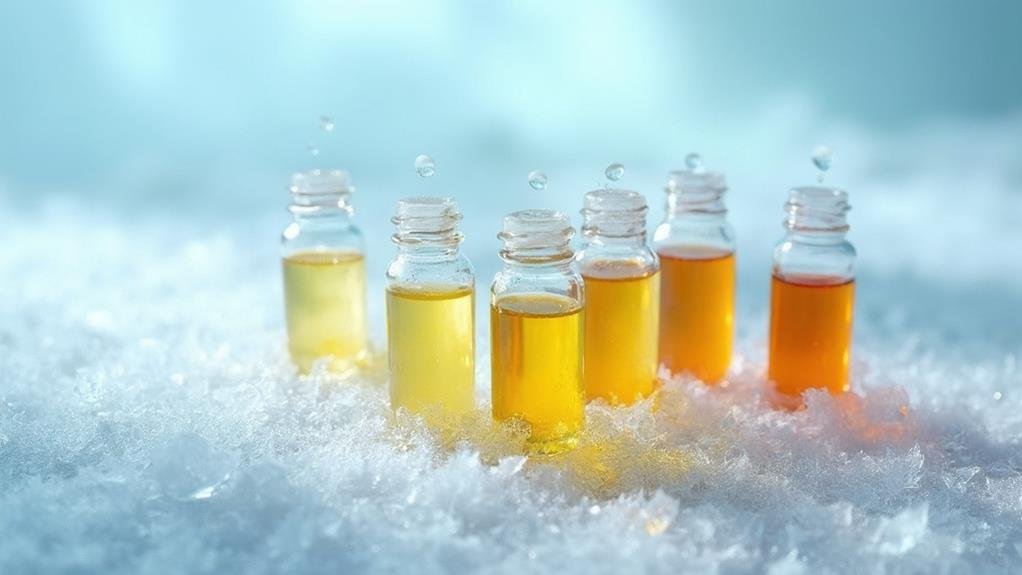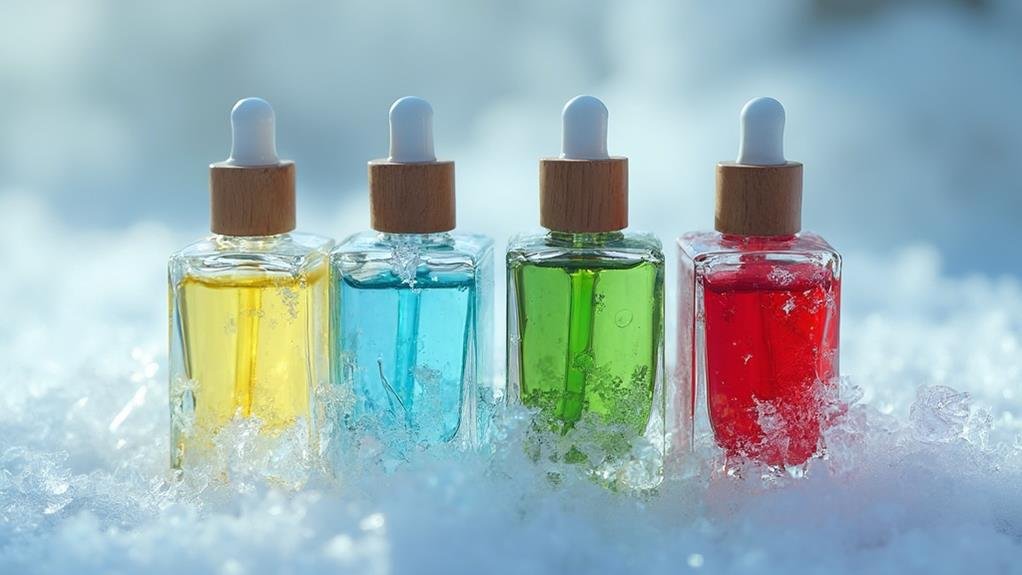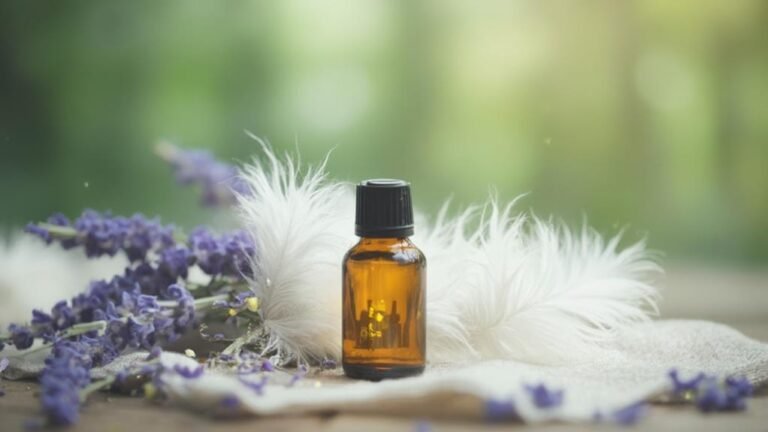Can Essential Oils Freeze?
Yes, essential oils can freeze, but not all of them do. The freezing point varies depending on the specific oil’s chemical composition.
Some oils may solidify or become cloudy in a typical freezer, while others remain liquid at very low temperatures.
Why Does Freezing Matter?
Knowing if an essential oil might freeze is important for proper storage. If an oil freezes, it can change its texture and how it works.
A frozen essential oil might be difficult to pour or blend, and its aroma may be temporarily less intense.
What Makes Essential Oils Freeze?

Essential oils are made up of different natural compounds that give them their unique scents and properties. These compounds also affect whether an oil will freeze or not.
- Types of Compounds:
- Monoterpenes (like those found in peppermint and eucalyptus) are more likely to freeze.
- Sesquiterpenes (found in patchouli and sandalwood) tend to stay liquid at lower temperatures.
- Esters (like those in lavender and tea tree oil) often have lower freezing points.
- Other Factors Affecting Freezing:
- Temperature: The colder the temperature, the more likely an oil is to freeze.
- Purity: Pure essential oils tend to have more consistent freezing points.
- Storage Conditions: Exposure to light and air can affect an oil’s quality and how it reacts to cold temperatures.
Essential Oils and Freezing
Here’s a quick guide to which oils are more or less prone to freezing:
| More Likely to Freeze/Solidify | Less Likely to Freeze |
|---|---|
| Peppermint | Lavender |
| Eucalyptus | Citrus oils (lemon, orange) |
| Rose | Tea tree oil |
| Jasmine | Patchouli (may vary) |
| Sandalwood (may vary) |
What Happens When Essential Oils Freeze?

When essential oils freeze, they might:
- Solidify: The oil may become a solid mass.
- Become Cloudy: The oil may turn cloudy or have crystals form.
- Change in Viscosity: The oil may become thicker and more difficult to pour.
- Have a Reduced Aroma: The scent of the oil may become weaker.
Important: These changes are usually temporary. Once the oil warms back up to room temperature, it should return to its normal state.
What to Do if an Essential Oil Freezes
If your essential oil freezes or becomes cloudy, don’t worry! Here’s what to do:
- Let it thaw naturally: Allow the oil to warm up to room temperature on its own.
- Avoid heat: Don’t use hot water or other heat sources to thaw the oil, as this can damage its delicate compounds.
- Gently swirl: Once thawed, gently swirl the bottle to ensure the oil is evenly mixed.
How to Store Essential Oils to Prevent Freezing and Maintain Quality
Proper storage is essential to keep your essential oils from freezing and losing their quality. Here are some tips:
- Temperature: The ideal temperature for storing most essential oils is between 60°F to 70°F (15°C to 21°C). This helps prevent freezing and protects the oils from extreme heat.
- Light Protection: Store your oils in a dark place or in dark-colored bottles (like amber or cobalt blue glass) to protect them from light damage.
- Airtight Containers: Make sure the lids on your essential oil bottles are tightly sealed to prevent air exposure, which can lead to oxidation and degrade the oil.
- For further guidelines on using carrier oils effectively in essential oils, you can explore our article on mixing essential oils with coconut oil as a carrier.
- Safety: Always keep essential oils out of reach of children and pets.
Should You Refrigerate Essential Oils?
Refrigerating essential oils can be beneficial for some, especially citrus and mint oils, as it can help preserve their volatile compounds and slow down oxidation. However, not all essential oils benefit from refrigeration.
Oils with high wax content (like sandalwood) or those prone to solidifying might become too thick or cloudy in the fridge.
If you do choose to refrigerate your oils, make sure to:
- Use airtight containers.
- Allow oils to return to room temperature before use.
- Check them regularly for any changes in aroma or appearance.
Conclusion
Understanding how cold temperatures affect essential oils is crucial for maintaining their quality and therapeutic properties.
By following proper storage guidelines and considering the unique characteristics of each oil, you can help preserve their potency and extend their shelf life. For more on this topic, check out how mixing essential oils with Vitamin E oil can enhance their benefits.
If you notice any changes in your essential oils after exposure to cold, allow them to warm up naturally, and they should return to their normal state.







